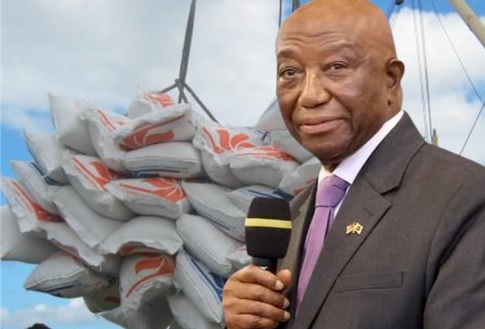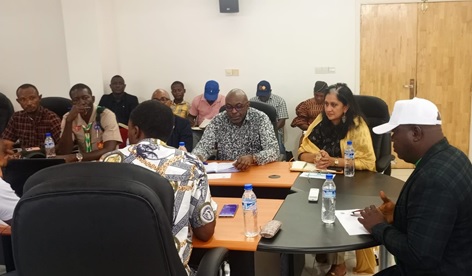MONROVIA – Rice, often referred to as a political commodity in Liberia, has historically played a pivotal role in shaping the fortunes of its leaders. Yesterday, President Joseph Nyuma Boakai’s decision to disapprove any price increase for rice has stirred significant attention. This move comes just five months into his administration and follows Commerce Minister Amin Modad’s proposal to increase the price of rice from $16.50 to $18.50 per 25kg bag. The decision is particularly noteworthy given the recent 20% import tax imposed by the Indian government, which has significantly impacted global rice prices. This article explores the implications of President Boakai’s decision for his administration and the political landscape of Liberia.
Rice is not just a staple food in Liberia; it is a symbol of economic stability and social peace. Any fluctuations in its price can lead to widespread public discontent. The decision by President Boakai to halt the proposed price increase underscores the critical nature of this commodity in maintaining public trust and confidence in his government. By freezing the price at its current level, Boakai aims to prevent potential unrest and reassure the population that his administration is attentive to their needs.
The proposal by Commerce Minister Amin Modad to raise the price of rice was seen by many as an unnecessary adjustment that would put ordinary Liberians at risk of going hungry. However, economic experts say Minister Modad’s decision reflects global market trends and economic realities. The recent surcharge by India, a major player in the global rice market, has exacerbated these pressures, making the proposed price hike seemingly unavoidable. However, Boakai’s intervention to disapprove the price hike can thus be interpreted as a strategic move to protect the most vulnerable segments of society during a period of global economic uncertainty.
Boakai’s decision also reflects a broader political strategy. Coming into office with a promise of economic stability and improved living conditions, he cannot afford to alienate his base so early in his tenure. By taking a firm stance against the rice price increase, Boakai signals to the electorate that he prioritizes their well-being over market-driven adjustments. This move is likely to bolster his popularity and strengthen the ruling Unity Party’s position, especially among low-income families who would be hardest hit by the price increase.
Moreover, this decision highlights the inherent tensions within the Unity Party regarding economic policy. While some factions may advocate for necessary economic reforms, others prioritize immediate social stability and public satisfaction. Boakai’s choice to freeze rice prices showcases his alignment with the latter perspective, aiming to ensure short-term stability and prevent social unrest. It will be interesting to see how this dynamic evolves and what compromises may be reached within the party.
The broader economic implications of this decision cannot be ignored. While halting the price increase may offer temporary relief to consumers, it also raises questions about the sustainability of such interventions. If global rice prices continue to rise due to external factors like India’s surcharge, the government may face increased financial pressure to subsidize the commodity, potentially straining national budgets. The long-term viability of maintaining artificially low rice prices will be a key challenge for Boakai’s administration.
Public reaction to Boakai’s decision has been largely positive, with many citizens expressing relief and support for the president’s stance. Social media and local news outlets have seen a surge in approval for the administration’s responsiveness to public concerns. However, critics argue that this move could be a short-term fix that fails to address underlying economic issues. They caution that without addressing the root causes of price volatility, such measures could lead to greater economic instability down the line.
As Boakai’s administration moves forward, it will need to balance the immediate political benefits of freezing rice prices with the longer-term economic realities. Effective communication and transparent governance will be crucial in maintaining public support while navigating the complex economic landscape. The administration’s ability to manage this delicate balance will likely be a defining factor in its overall success.
In conclusion, President Boakai’s decision to disapprove any increase in the price of rice underscores the political significance of this commodity in Liberia. It reflects a strategic effort to maintain public trust and prevent social unrest while highlighting the inherent challenges of balancing economic policy with social stability. As the Boakai-led Unity Party continues its governance, the handling of rice prices will remain a critical issue, symbolizing broader economic and political dynamics in the country. The coming months will test the administration’s ability to sustain this approach in the face of global market pressures and internal political challenges.







